8 Books by Robert Graves
Requirements: ePUB Reader | 21.2 MB | Version: Retail (US & UK Versions)
Overview: ROBERT GRAVES (1895-1985) was an English poet, translator, and novelist, one of the leading English men of letters in the twentieth century. He fought in World War I and won international acclaim in 1929 with the publication of his memoir of the First World War, Good-bye to All That. After the war, he was granted a classical scholarship at Oxford and subsequently went to Egypt as the first professor of English at the University of Cairo. He is most noted for his series of novels about the Roman emperor Claudius and his works on mythology, such as The White Goddess.
Genre: Fiction > General Fiction/Classics

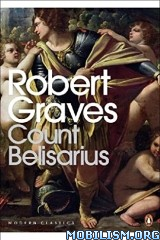
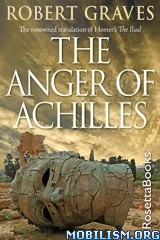

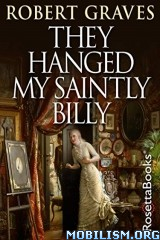
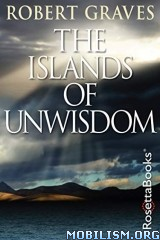
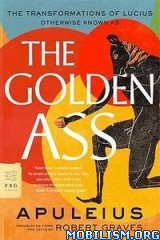

The Golden Fleece (AKA. Hercules, My Shipmate)
What the Golden Fleece really was—a cloak tossed to earth by a drunken Zeus, a sheepskin book of alchemic secrets or the gilded epidermis of a young human sacrifice named Mr. Ram—nobody knows. But Graves is quite sure that, whatever the Golden Fleece was, the voyage of Jason & his Argonauts really happened. His story shows the legendary cruise as one of the bawdiest, bloodiest, most boisterous expeditions of all time.
In I, Claudius & its Claudius the God sequel, Graves brought the teeming life of Claudian Rome so vividly alive that they became bestsellers. In the not-so-successful Wife to Mr. Milton, his blend of imagination & scholarship projected his readers into 17th-Century England & the bedchamber temper tantrums of the blind poet-politician.
With Hercules & shipmates, Graves becomes an ancient Greek, moving among demigods & goddesses, myths & monsters with an easy familiarity & a wealth of erudite detail. Both sometimes seem too much of a good thing. Atomic-age readers, ill-attuned to the leisurely, formal talk of myth-age Greeks, may find themselves skipping some of the longer speeches.
Count Belisarius
Threatened by invaders on all sides, the Eastern Roman Empire of the sixth century fought to maintain its borders. Leading its defense was the Byzantine general Belisarius, a man who earned the grudging respect of his enemies, and who rose to become Emperor Justinian's greatest military leader. Loosely based on Procopius's History of the Justinian Wars and Secret History, this novel tells the Belisarius's story through the eyes of Eugenius, a eunuch and servant to the general's wife. It presents a compelling portrait of a man bound by a strict code of honor and unrelenting loyalty to an emperor who is intelligent but flawed, and whose decisions bring him to a tragic end. Eminent historical novelist and classicist Robert Graves presents a vivid account of a time in history both dissolute and violent, and demonstrates one again his mastery of this historical period.
The Anger of Achilles: (The Renowned Translation of Homer's The Illiad)
The war between the Greeks and the Trojans has reached a fever pitch. Offended by Agamemnon, the great Greek warrior Achilles is in his tent, refusing to fight. But then Trojan prince Hector slaughters Patroclus, Achilles' close friend. Willing or not, Achilles must take revenge for his friend's death, even if it will result in his own.
The Anger of Achilles is a novelized interpretation of Homer's Iliad, told by noted classicist and historical novelist Robert Graves. In this innovative take on the classic tale, Achilles comes to life in all his vivid rage, bravery, passion, and lust for battle. Combining his advanced expertise in ancient Greek warfare and culture with a talent for telling a compelling story, Robert Graves is the ideal translator to bring this ancient epic of war to a modern audience.
—This edition includes a compelling introduction by the author, who argues that Homer’s Iliad is best understood as a satire, closer in spirit to the works of Cervantes than those of Milton.
King Jesus
Robert Graves's controversial historical novel is a bold reworking of the story of Christ. Here Jesus is not the son of God, but the result of a secret marriage - the descendant of Herod and true King of the Jews. Written from the perspective of a lowly official at the end of the first century AD, King Jesus recounts Jesus's birth, youth, life as a charismatic 'wonder worker' and the unorthodox, bitter nature of his death and resurrection. Portraying Jesus not as divine but as a flawed human bent upon his own doom, this retelling of the gospels is a compelling blend of research, imagination and narrative power.
They Hanged My Saintly Billy: The Life and Death of Dr. William Palmer
A self-confessed forger, cheat, thief, and petty criminal, William Palmer was also a surgeon and a racehorse owner during the Victorian era who doped horses, fixed races, philandered unapologetically, and generally behaved as an all-around rogue. But the crime for which he was condemned was altogether more serious: poisoning numerous members of his family as well as a close friend. Based on the historic trial of a man characterized as a sociopath and a serial killer, Robert Graves tells the story of a man who was deeply flawed but ultimately not beyond redemption.
—They Hanged My Saintly Billy is brimming with humor, emotion, and social commentary. Told through the eyes of both friends and enemies, Palmer comes to life as a not-unsympathetic anti-hero.
The Islands of Unwisdom (AKA: The Isles of Unwisdom)
et in the Age of Exploration, The Islands of Unwisdom tells the story of the ill-fated Don Álvaro de Mendaña y Neyra, a Spanish explorer set on finding the Solomon Islands, the mythical source of King Solomon’s vast wealth. Driven by greed, ambition, and lust, Don Alvaro and his wife, the beautiful and dangerous Ysabel, lead a crew of adventurers beyond the horizon in search of the wealth of their wildest dreams. However, that’s not exactly what they find. In the hands of master historical novelist, classicist, and poet Robert Graves, this tale offers a fascinating look at a brutal and bloody era, and insights into the reasons for Spain’s failure to ultimately dominate world exploration during this time.
The Golden Ass: The Transformations of Lucius by Apuleius | Robert Graves (tr.)
The story of The Golden Ass is that of Lucius Apuleius, a young man of good birth who encountered many strange adventures while disporting himself along the roads to Thessaly. Not the least of these occurred when Apuleius offended a priestess of the White Goddess, who turned him into an ass. The tale of how Apuleius dealt with this misfortune and eventually resumed human form is conveyed by Robert Graves in modern English that is infused with a bawdy wit and sense of adventure that is "itself a small masterpiece of twentieth-century prose"
Robert Graves: Selected Poems (Edited by Michael Longley)
Robert Graves is celebrated as a love poet, a metaphysical poet, a master craftsman whose formal influence has been pervasive. He is less well known as a war poet, and this selection restores his poetry of the Great War to its proper place in the dynamic of his work. Graves's verse blossomed in the decades following the war. In 1925 he met the American poet Laura Riding, who encouraged his critical writing and became the muse of his totemic prose work, The White Goddess (1948), a vast canvas that he titled 'a historic grammar of poetical myth'. Graves's brilliant but unorthodox rendering of The Greek Myths (1955) remains a landmark publication amid an extensive output that included essays, fiction, biography, ballads and works for children. He died in 1985 and is commemorated at Poets' Corner in Westminster Abbey.
—This edition of Robert Graves's poems is scrupulously selected by Michael Longley from across the full range of his lifetime's verse. It opens with an illuminating introduction in which Longley makes a persuasive case for the importance of this remarkable poet.
Download Instructions:
(Filehost down) http://www.centfile.com/36y14cx0b3dp
https://dz4up.com/1WIu
Trouble downloading? Read This.
Requirements: ePUB Reader | 21.2 MB | Version: Retail (US & UK Versions)
Overview: ROBERT GRAVES (1895-1985) was an English poet, translator, and novelist, one of the leading English men of letters in the twentieth century. He fought in World War I and won international acclaim in 1929 with the publication of his memoir of the First World War, Good-bye to All That. After the war, he was granted a classical scholarship at Oxford and subsequently went to Egypt as the first professor of English at the University of Cairo. He is most noted for his series of novels about the Roman emperor Claudius and his works on mythology, such as The White Goddess.
Genre: Fiction > General Fiction/Classics








The Golden Fleece (AKA. Hercules, My Shipmate)
What the Golden Fleece really was—a cloak tossed to earth by a drunken Zeus, a sheepskin book of alchemic secrets or the gilded epidermis of a young human sacrifice named Mr. Ram—nobody knows. But Graves is quite sure that, whatever the Golden Fleece was, the voyage of Jason & his Argonauts really happened. His story shows the legendary cruise as one of the bawdiest, bloodiest, most boisterous expeditions of all time.
In I, Claudius & its Claudius the God sequel, Graves brought the teeming life of Claudian Rome so vividly alive that they became bestsellers. In the not-so-successful Wife to Mr. Milton, his blend of imagination & scholarship projected his readers into 17th-Century England & the bedchamber temper tantrums of the blind poet-politician.
With Hercules & shipmates, Graves becomes an ancient Greek, moving among demigods & goddesses, myths & monsters with an easy familiarity & a wealth of erudite detail. Both sometimes seem too much of a good thing. Atomic-age readers, ill-attuned to the leisurely, formal talk of myth-age Greeks, may find themselves skipping some of the longer speeches.
Count Belisarius
Threatened by invaders on all sides, the Eastern Roman Empire of the sixth century fought to maintain its borders. Leading its defense was the Byzantine general Belisarius, a man who earned the grudging respect of his enemies, and who rose to become Emperor Justinian's greatest military leader. Loosely based on Procopius's History of the Justinian Wars and Secret History, this novel tells the Belisarius's story through the eyes of Eugenius, a eunuch and servant to the general's wife. It presents a compelling portrait of a man bound by a strict code of honor and unrelenting loyalty to an emperor who is intelligent but flawed, and whose decisions bring him to a tragic end. Eminent historical novelist and classicist Robert Graves presents a vivid account of a time in history both dissolute and violent, and demonstrates one again his mastery of this historical period.
The Anger of Achilles: (The Renowned Translation of Homer's The Illiad)
The war between the Greeks and the Trojans has reached a fever pitch. Offended by Agamemnon, the great Greek warrior Achilles is in his tent, refusing to fight. But then Trojan prince Hector slaughters Patroclus, Achilles' close friend. Willing or not, Achilles must take revenge for his friend's death, even if it will result in his own.
The Anger of Achilles is a novelized interpretation of Homer's Iliad, told by noted classicist and historical novelist Robert Graves. In this innovative take on the classic tale, Achilles comes to life in all his vivid rage, bravery, passion, and lust for battle. Combining his advanced expertise in ancient Greek warfare and culture with a talent for telling a compelling story, Robert Graves is the ideal translator to bring this ancient epic of war to a modern audience.
—This edition includes a compelling introduction by the author, who argues that Homer’s Iliad is best understood as a satire, closer in spirit to the works of Cervantes than those of Milton.
King Jesus
Robert Graves's controversial historical novel is a bold reworking of the story of Christ. Here Jesus is not the son of God, but the result of a secret marriage - the descendant of Herod and true King of the Jews. Written from the perspective of a lowly official at the end of the first century AD, King Jesus recounts Jesus's birth, youth, life as a charismatic 'wonder worker' and the unorthodox, bitter nature of his death and resurrection. Portraying Jesus not as divine but as a flawed human bent upon his own doom, this retelling of the gospels is a compelling blend of research, imagination and narrative power.
They Hanged My Saintly Billy: The Life and Death of Dr. William Palmer
A self-confessed forger, cheat, thief, and petty criminal, William Palmer was also a surgeon and a racehorse owner during the Victorian era who doped horses, fixed races, philandered unapologetically, and generally behaved as an all-around rogue. But the crime for which he was condemned was altogether more serious: poisoning numerous members of his family as well as a close friend. Based on the historic trial of a man characterized as a sociopath and a serial killer, Robert Graves tells the story of a man who was deeply flawed but ultimately not beyond redemption.
—They Hanged My Saintly Billy is brimming with humor, emotion, and social commentary. Told through the eyes of both friends and enemies, Palmer comes to life as a not-unsympathetic anti-hero.
The Islands of Unwisdom (AKA: The Isles of Unwisdom)
et in the Age of Exploration, The Islands of Unwisdom tells the story of the ill-fated Don Álvaro de Mendaña y Neyra, a Spanish explorer set on finding the Solomon Islands, the mythical source of King Solomon’s vast wealth. Driven by greed, ambition, and lust, Don Alvaro and his wife, the beautiful and dangerous Ysabel, lead a crew of adventurers beyond the horizon in search of the wealth of their wildest dreams. However, that’s not exactly what they find. In the hands of master historical novelist, classicist, and poet Robert Graves, this tale offers a fascinating look at a brutal and bloody era, and insights into the reasons for Spain’s failure to ultimately dominate world exploration during this time.
The Golden Ass: The Transformations of Lucius by Apuleius | Robert Graves (tr.)
The story of The Golden Ass is that of Lucius Apuleius, a young man of good birth who encountered many strange adventures while disporting himself along the roads to Thessaly. Not the least of these occurred when Apuleius offended a priestess of the White Goddess, who turned him into an ass. The tale of how Apuleius dealt with this misfortune and eventually resumed human form is conveyed by Robert Graves in modern English that is infused with a bawdy wit and sense of adventure that is "itself a small masterpiece of twentieth-century prose"
Robert Graves: Selected Poems (Edited by Michael Longley)
Robert Graves is celebrated as a love poet, a metaphysical poet, a master craftsman whose formal influence has been pervasive. He is less well known as a war poet, and this selection restores his poetry of the Great War to its proper place in the dynamic of his work. Graves's verse blossomed in the decades following the war. In 1925 he met the American poet Laura Riding, who encouraged his critical writing and became the muse of his totemic prose work, The White Goddess (1948), a vast canvas that he titled 'a historic grammar of poetical myth'. Graves's brilliant but unorthodox rendering of The Greek Myths (1955) remains a landmark publication amid an extensive output that included essays, fiction, biography, ballads and works for children. He died in 1985 and is commemorated at Poets' Corner in Westminster Abbey.
—This edition of Robert Graves's poems is scrupulously selected by Michael Longley from across the full range of his lifetime's verse. It opens with an illuminating introduction in which Longley makes a persuasive case for the importance of this remarkable poet.
Download Instructions:
(Filehost down) http://www.centfile.com/36y14cx0b3dp
https://dz4up.com/1WIu
Trouble downloading? Read This.
